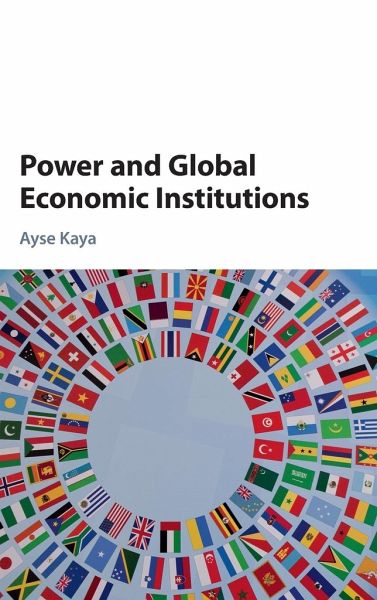
Power and Global Economic Institutions
Versandkostenfrei!
Versandfertig in 1-2 Wochen
114,99 €
inkl. MwSt.
Weitere Ausgaben:

PAYBACK Punkte
57 °P sammeln!
What is the relationship between states' economic power and their formal political power in multilateral economic institutions? Why do we see variation in states' formal political power across economic institutions of the same era? In this book, Ayse Kaya examines these crucial under-explored questions, drawing on multiple theoretical traditions within international relations to advance a new approach of 'adjusted power'. She explains how the economic shifts of our time, marked by the rise of Brazil, Russia, India, China and other emerging economies, have affected and will impact key multilate...
What is the relationship between states' economic power and their formal political power in multilateral economic institutions? Why do we see variation in states' formal political power across economic institutions of the same era? In this book, Ayse Kaya examines these crucial under-explored questions, drawing on multiple theoretical traditions within international relations to advance a new approach of 'adjusted power'. She explains how the economic shifts of our time, marked by the rise of Brazil, Russia, India, China and other emerging economies, have affected and will impact key multilateral economic institutions. Through detailed contemporary and historical analyses of the International Monetary Fund, the World Bank, the G20, and the International Trade Organization, Kaya shows that the institutional setting mediates the significance of the underlying distribution of economic power across states. The book presents both case studies and key statistics.




